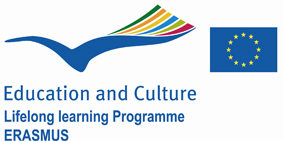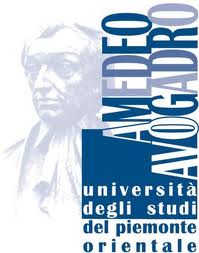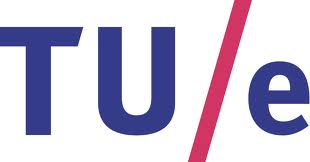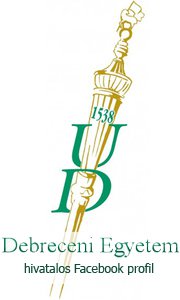Scuole


Intensive Programme 2011
Design, Synthesis and Validation of Imaging Probes
Description
The purpose of the Intensive Programme (IP) in "Design, Synthesis and Validation of Imaging Probes" is to develop an in-depth and up-to-date training covering the design, synthesis and characterization of imaging probes, including their functionalization and labeling for different imaging modalities.
This IP will be addressed to Master and PhD students in biology, chemistry or physics. The participation of 20 Master/PhD students from the partner universities will receive a support of the European Commission - Erasmus Programme to attend the course.
The Intensive Programme will be hosted at the Department of Chemistry IFM of the University of Torino in the period September 19th-30th, 2011.
To apply: please see below at the application section.
- Coordinator: Dario Longo
- Assistant Coordinator: Walter Dastrú
- Coordinating Institution: University of Torino (Italy)
- Location: Molecular Imaging Center, Via Nizza 52 - Torino (Italy)
Partners
Schedule
| Nr. | Day | The programme of lectures and other activities |
| 1 | - | Arrival of the foreign students - welcome |
| 2 | 1 | Overview of Imaging Probes for MRI / PET-SPECT / OI |
| 3 | 2 | Introduction to MRI mechanism of action and principles / Gd- and Mn-based contrast agent: theory and properties / MRI imaging experiments |
| 4 | 3 | Responsive contrast agents and iron-oxide particles for MRI applications/ relaxometric characterization of contrast agents |
| 5 | 4 | Introduction to CEST and hyperpolarized contrast agents: properties and applications / preparation and in vivo evaluation |
| 6 | 5 | Nanoprobes: definition and exploitation for multi-modality imaging purposes / preparation, in vitro and in vivo characterization and detection |
| 7 | - | Visit to Turin main historical buildings |
| 8 | - | Free activities / Taste of italian gastronomy |
| 9 | 6 | Basic principles of probe design and synthesis / properties required by MRI contrast agents / introduction to cellular labelling |
| 10 | 7 | Strategies for the development of imaging probes / basic principles of ligand and peptide synthesis / cellular labelling experiment |
| 11 | 8 | Procedures for ligand syntesis and purification / peptide synthesis practical session |
| 12 | 9 | Introduction to peptide conjugation and to crommatography / imaging probe synthesis practical session |
| 13 | 10 | Ultrasounds for probe preparation procedure and HPLC practical session / final remarks devoted to the elucidation of the most important issues of the IP and final students evaluation |
| 14 | - | Departure |
Location
The IP 2011 will take place from 19th to 30th september 2011. Lectures will be held at the Molecular Biotechnology Center, Via Nizza 52, Torino.
Students will be accommodated at EDISU, a student residence held by the University of Torino in Corso Lungo Dora Siena, 150, Torino and at Open011, a residence located in Corso Venezia, 11.
The following services are included:
- Breakfast
- Blankets, bed linen and towel (changed once every 7 days)
- Cleaning (once every 7 days)
- Free internet connection
Information on how to reach the location of the IP from airport or by train and on how to reach the lecture room from the residence will be sent to you by email.
Application
- The application for our Intensive Programme must be made exclusively by submitting the registration form to the corresponding local coordinator. The deadline is set at 30th of July, 2011.
- The selection procedures are undertaken by each corresponding local coordinator at their partner institutions, who will decide whether to confirm that those applicants are well prepared and motivated to attend the programme. This process will continue up to completion of the 25 available places.
- Scholarships are offered to students from the partner institutions. If you are applying for a scholarship, please notice that you will have to participate in all the 10 successive days of the programme. If you are planning to attend less than 10 successive days of the programme, you are not eligible for a scholarship and your expenses cannot be reimbursed.
- In case you have been selected to participate in the IP
(with/without fellowship), please submit the following
document, saved as a pdf file:
- copy of your passport (or id card for EU applicants).
- an official document certifying your enrollment to a partner University for the current academic year.
- flight electronic ticket (or a scanned copy of your flight ticket). Please notice that only tickets from/to your home institution can be reimbursed (this only applies to students who have been awarded a scholarship).
Additional info / News
- IP PROBES 2011 leaflet
- IP PROBES 2011 detailed schedule
- IP PROBES 2011 registration form
- IP PROBES 2011 stipend eligibility rules
- How to reach the MBC
- How to reach the residences
Lecture notes
| Mon, 19th | Tue, 20th | Wed, 21th | Thu, 22th | Fri, 23th |
|---|---|---|---|---|
| Wellcome and IP introduction | NMR and MRI introduction | Hyper-polarized contrast agent | Iron oxide particles | Strategies for cellular labeling |
| Imaging Probe: an overview | Gd(III) complexes: mechanism of action and relaxometric properties | Hyper-polarized experiment | CEST agents: basic principles, mechanism of action and classification | Nano-particles for Multi-Modality Imaging |
| Optical imaging probes | Mn-based Contrast Agents | Gd(III) complexes: basic relaxometric characterization | Responsive MRI Contrast Agents | NanoProbe practical session I |
| PET and SPECT radiochemistry : Selected examples of Labelling of Macromolecules | T1 / T2 measure experiments | Relaxometric characterization of Gd(III) complexes and NMRD/17O analysis | NanoProbes | NanoProbe practical session II |
| Mon, 26th | Tue, 27th | Wed, 28th | Thu, 29th | Fri, 30th |
| Physico-chemical properties of Ln(III) complexes | Basic principles and procedures of solid phase peptide synthesis | Computational design of Imaging Probes | Preparation of Imaging Probes underbesid power utrasounds/microvawes irradation | Analytical HPLC |
| Gd(III) complexes: the importance of kinetic and thermodynamic stability | Developing an imaging probe | Ligand synthesis part II | Peptide modification and conjugation to probes | HPLC separation: from analytical to preparative method I |
| Design of Imaging Probes | MRI assessment of the cell labeling experiment | Basic principles of chromatographic separation techniques | Synthesis of metal-based imaging probe | HPLC separation: from analytical to preparative method II |
| Ligand synthesis part I | MRI assessment of the cell labeling experiment | Peptide Synthesis | Peptide Cleavage | Final consideration and remarks / Final student assesments |








